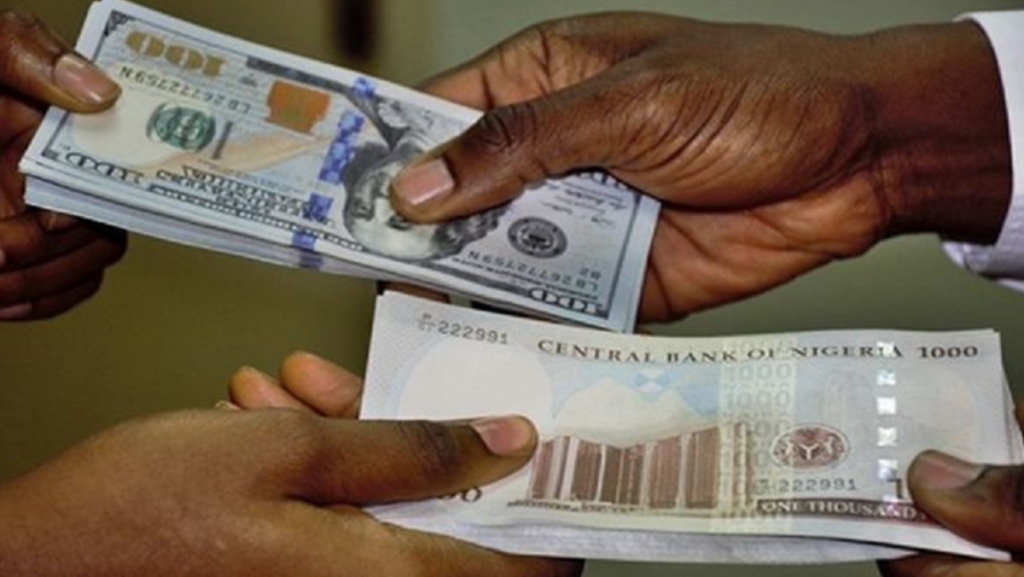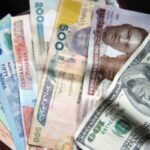The Nigerian naira showed resilience against the US dollar in the parallel market this week, reflecting a slight appreciation despite challenges.
On Friday, the naira was valued at N1,500 per dollar, improving from N1,510 on Thursday. Similarly, in the Nigerian Autonomous Foreign Exchange Market (NAFEM), the naira strengthened to N1,482.8 from N1,485.7.
Join our WhatsApp ChannelThis positive movement comes as the dollar index experienced losses amid profit-taking. Following five consecutive trading sessions of gains, the dollar index dropped by 0.3% on Friday, closing at 104 points. Despite this decline, the dollar index posted a weekly gain of 0.2%, buoyed by strong US economic data.
EFCC Intensifies Crackdown on Illegal Forex Trading
The Economic and Financial Crimes Commission (EFCC) has ramped up efforts to combat illegal foreign exchange trading. In recent operations, EFCC agents arrested several currency traders in Abuja, Lagos, Kano, and Port Harcourt. These actions are part of a broader strategy to stabilize the naira by clamping down on street trading and speculative activities.
READ ALSO: Naira Decline Breaks Four-Day Winning Streak, Falls To N1485/$1 Amid Forex Market Volatility
EFCC Chairman Abdulrasheed Bawa emphasized, “We are committed to curbing illegal forex trading that undermines our currency. These arrests send a strong message that illegal activities will not be tolerated.”
The EFCC’s campaign has also led to the freezing of over 300 accounts linked to unauthorized forex transactions. This initiative is being supported by the Securities and Exchange Commission (SEC), which plans to collaborate with the EFCC to address forex trading manipulations in the digital space.
CBN Raises Capital Requirements for BDCs
In a related move, the Central Bank of Nigeria (CBN) has significantly increased capital requirements for Bureau de Change (BDC) operators. This regulatory adjustment aims to ensure that the BDC sector does not undermine the naira’s value.
CBN Head of Risk Management, Blaise Ijebor, stated, “Foreign exchange trading on the street is prohibited. By raising capital requirements, we aim to regulate the BDC sector more effectively.”
Under the new regulations, capital requirements for tier one BDCs operating nationwide have been raised from N35 million to N2 billion. Tier two BDCs, which operate within a single state, will see their capital requirements increase from N35 million to N500 million. BDC operators have six months to comply with these new standards.
The Association of Bureau de Change Operators of Nigeria (ABCON) has requested a delay and reduction in these thresholds, arguing that the new requirements are stringent compared to global standards.
Government Moves Against Cryptocurrency Trading
The Federal Government has also announced plans to ban the trading of cryptocurrencies in naira. This measure is part of a broader crackdown on cryptocurrency platforms, which officials claim are contributing to the naira’s volatility.
“The volatility of the naira is a concern,” said Finance Minister Zainab Ahmed. “Cryptocurrency trading has exacerbated this issue, and we need to take decisive action.”
Impact of Naira’s Fluctuations
The naira has faced significant challenges, losing more than two-thirds of its value against the dollar since the liberalization of Nigeria’s FX market last year. These fluctuations have had widespread implications for the economy, affecting businesses and consumers alike.
As the EFCC intensifies its crackdown and the CBN implements stricter regulations, the future of the naira remains uncertain. However, these efforts reflect a concerted attempt by Nigerian authorities to stabilize the currency and protect the economy from further volatility.
While the naira’s recent appreciation in the parallel market offers a glimmer of hope, the road to stability is fraught with challenges. The combined efforts of the EFCC, CBN, and other regulatory bodies are crucial in addressing the speculative activities and regulatory gaps that have contributed to the naira’s decline. The coming months will reveal the effectiveness of these measures and their impact on Nigeria’s economic landscape.
Emmanuel Ochayi is a journalist. He is a graduate of the University of Lagos, School of first choice and the nations pride. Emmanuel is keen on exploring writing angles in different areas, including Business, climate change, politics, Education, and others.


















Follow Us